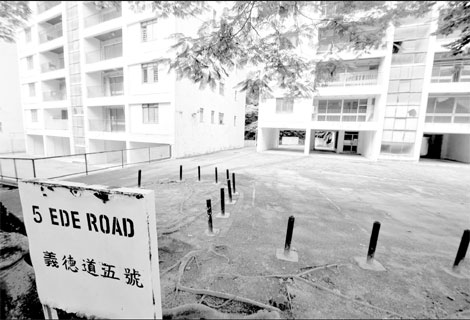Mainland interest rate hike won't boost city's asset prices
Updated: 2010-10-21 07:05
By Oswald Chen(HK Edition)
|
|||||||||
|
A site in Kowloon reached a record high price last week in the district, signaling confidence in luxury property prices. An analyst said the mainland interest rate hike would not affect the city's asset market. Thomas Lee / Bloomberg |
Analyst: The real cause of bubble is US monetary policy
A financial analyst in Hong Kong said Wednesday that the interest rate hike on the mainland will have little effect on the city's asset markets as the fundamental reason for the global surge in asset prices is the US quantitative easing monetary policy.
"As the US is highly likely to conduct another round of quantitative monetary easing as early as November, it is this fundamental factor, and not Chinese interest rate hikes, that is propelling the long term price surge in various asset markets," said Mark Wan, chief analyst at Hang Seng Investment Services. He added that any correction in asset market prices is likely only in the short term.
The mainland has joined other emerging market nations, such as India and Brazil, in raising interest rates to clamp down on inflationary pressures sparked by tremendous capital inflows. The People's Bank of China on Tuesday evening raised benchmark rates by 25 basis points for the first time in nearly three years, taking one-year deposit rates to 2.5 percent and one-year lending rates to 5.56 percent effective Wednesday.
Mainland economists said that the move reflected the Central Government's resolve to take further action to control inflation as it has accelerated to its highest level in 22 months in August at 3.5 percent.
It has been forecast by some, however, that if the mainland raises interest rates, it will attract even more overseas capital to Hong Kong due to the mainland's capital account controls. Another possibility is that when China raises interest rates, it will prompt further appreciation of the yuan. It will also further induce more asset purchases by mainlanders in Hong Kong as the local asset prices would be considered cheaper compared with the rising value of the yuan.
Chris Leung, a senior economist at DBS Bank (Hong Kong), disagreed with the above speculation, saying that mainland interest rate hikes are unlikely to have much of an effect on local asset prices.
"It is not Hong Kong that raised the interest rate, so the capital inflow to the city will not be great, and local asset prices will not jump dramatically," Leung said.
Hang Seng Investment Services' Wan admitted that the rise of yuan deposit rates in local banks may entice more capital to flow there in search of safety.
Standard Chartered Bank (Hong Kong) has raised the one-month yuan fixed deposit rate to 1.18 percent from its original 1.1 percent.
The local Hang Seng Index shed 0.9 percent Wednesday as investors dumped securities for fear that mainland corporate profitability may be hurt as the interest rate hike will increase capital costs for companies.
DBS's Leung noted that the mainland has entered into an "interest rate hike cycle" as the authorities keep a close eye on inflation.
Leung stressed that raising interest rates on the mainland will be good for the Hong Kong economy because if inflation can be controlled on the mainland, it can relieve the pressure of imported inflation in the local economy.
China Daily
(HK Edition 10/21/2010 page3)
